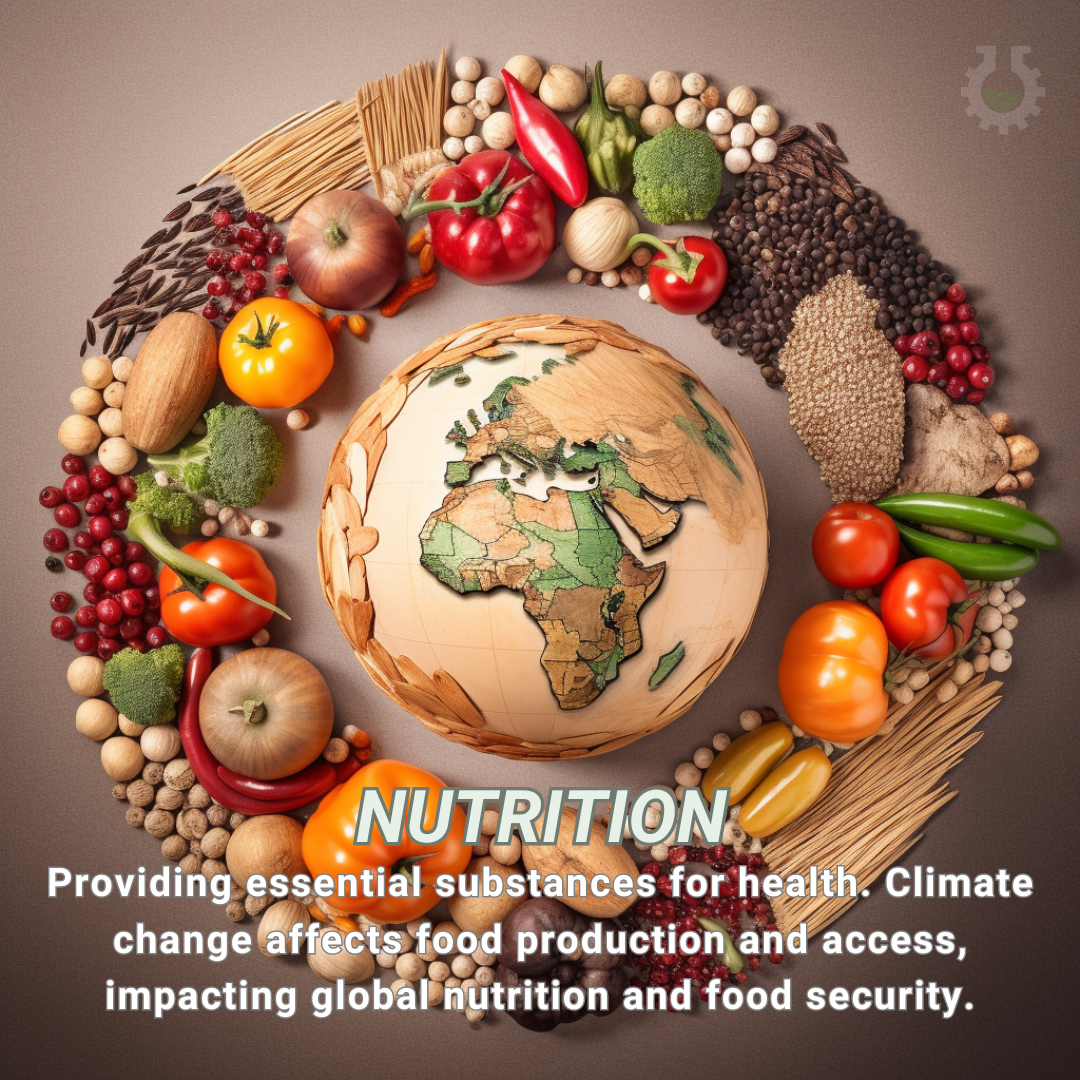November 8, 2023
Climate Change Poster Collection of the Day – Nutrition
Book a Demo
Today’s Climate Change Poster Collection focuses on Nutrition, the process of providing the body with essential substances for growth, health, and energy. Climate change is increasingly recognized as a critical global issue, with significant ramifications for our everyday lives – most notably, our food supplies. This complex phenomenon affects food supplies by altering crop yields, livestock health, and food transportation through weather extremes like floods, droughts, hurricanes, heatwaves, and wildfires. These factors are interlinked and could potentially disrupt the global food supply chain, undermining our ability to feed the world’s growing population.
One of the less-discussed aspects of climate change is its impact on the nutritional value of food. Rising CO2 levels, a critical component of climate change, diminish the nutritional value of staple crops such as rice and wheat. These crops are more than just food; they form the primary nutrition source for 76% of the global population. Therefore, any decline in their nutritional content could have far-reaching implications for global health.
The severity of this issue is highlighted in a study led by Sam Myers from the Harvard Chan School. This groundbreaking research suggests that the high CO2 levels predicted for 2050 could lead to significant loss of essential nutrients like zinc, iron, and protein in food crops. Such nutrient deficiencies pose serious health risks, especially in developing countries. The impact is profound, affecting maternal mortality rates and children’s brain development, among other things.
Climate change is predicted to negatively influence food nutrition in multiple ways. It is expected to decrease food quantity, access, and diversity while reducing the nutritional content of available food. The repercussions of climate change on food nutrition could be severe, particularly for populations in developing nations. These communities could face substantial health consequences if mitigation and adaptation measures are not enforced promptly and effectively.
To tackle the climate change-induced nutritional crisis, we need to reimagine our food systems. Climate-smart and nutrition-sensitive food systems are required, particularly in developing nations, to adapt to climate change impacts and ensure access to nutritionally rich food. These systems should ideally be resilient, sustainable, and inclusive, protecting biodiversity while promoting access to nutritious food for all.
However, the burden of climate change and undernutrition is not equally shared. Vulnerable groups such as women, children, and poorer rural households are likely to experience the most severe effects of climate change. This disparity is even more pronounced in fragile and conflict-affected states, where climate change adds another layer of complexity to existing challenges.
The intersection of climate change and nutrition is an urgent issue that requires immediate attention. As we strive towards a more sustainable future, ensuring the nutritional quality of our food must be at the forefront of our climate change strategies. After all, our health and well-being are inextricably linked to the health of our planet.
Discover an inspiring collection of climate change poster.



